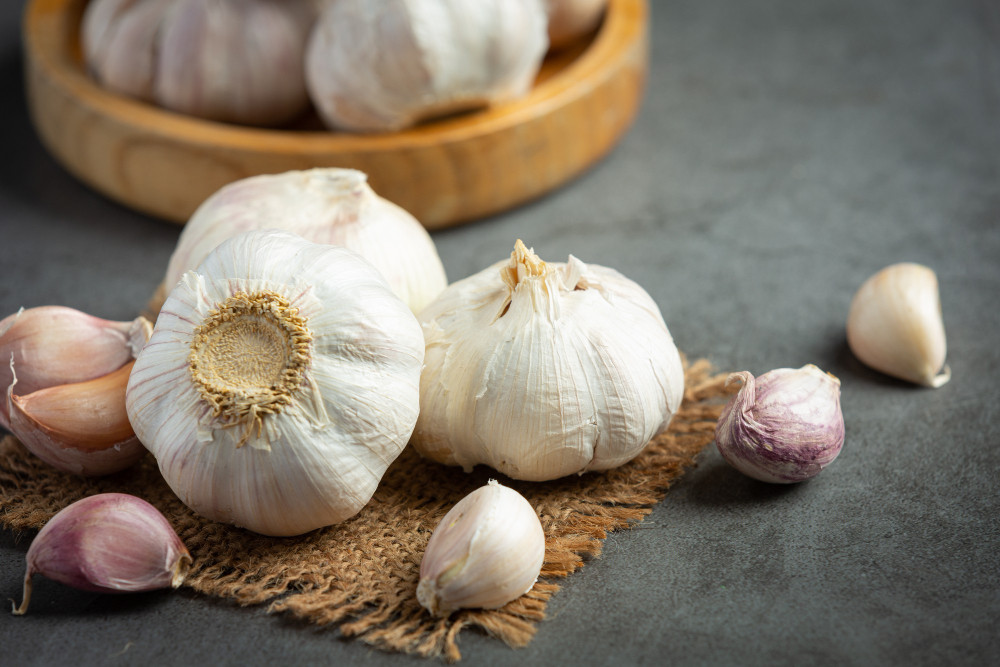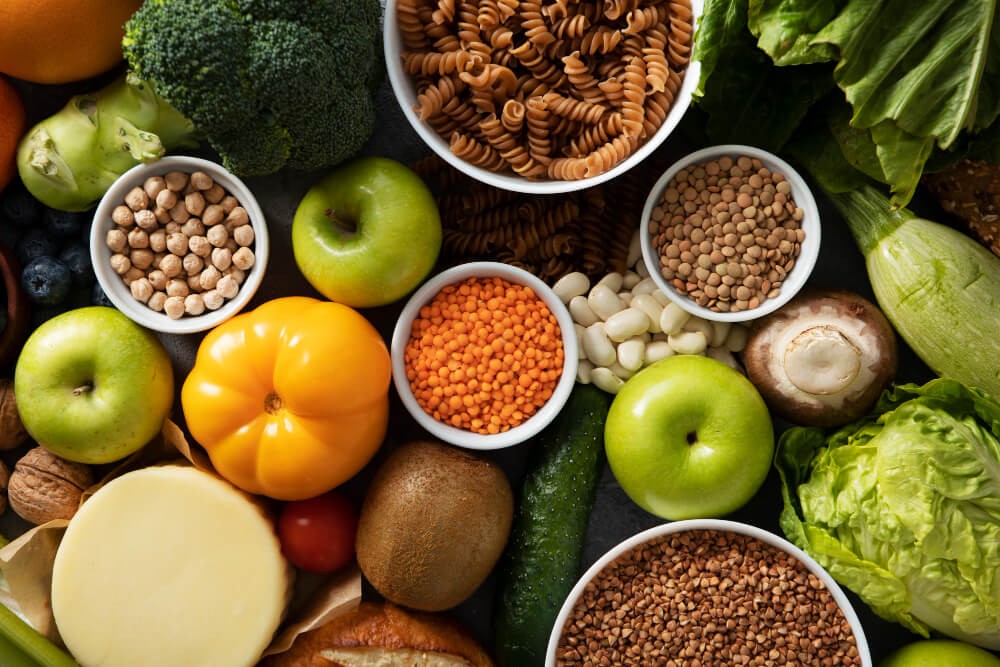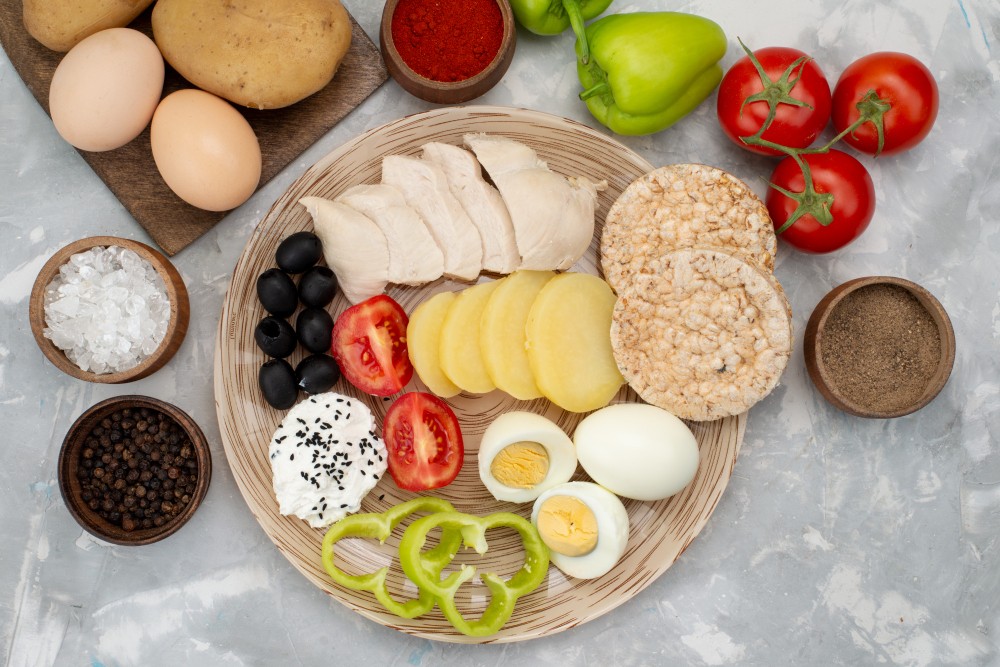Dalam sistem pencernaan manusia terdapat bakteri baik yang berfungsi untuk membantu mencerna makanan dan menjaga sistem kekebalan tubuh. Agar bakteri baik dapat tumbuh dengan baik, membutuhkan makanan yang dikenal sebagai prebiotik. Apa itu prebiotik dan apa saja makanan yang mengandung prebiotik? Yuk, simak dalam ulasan berikut!
Apa Itu Prebiotik?
Anda mungkin sering mendengar istilah probiotik dan prebiotik. Meski keduanya terdengar mirip, namun probiotik dan prebiotik sebenarnya adalah dua hal yang berbeda. Probiotik adalah bakteri yang membawa manfaat bagi kesehatan, terutama saluran pencernaan. Sementara itu prebiotik adalah jenis makanan yang tinggi serat bagi bakteri baik yang tumbuh di dalam tubuh manusia.
Bakteri baik dalam pencernaan manusia memiliki fungsi penting untuk menjaga kesehatan saluran pencernaan, menjaga kesehatan mental dan menjaga kesehatan tubuh secara umum. Dengan menjaga pertumbuhan bakteri baik tetap seimbang melalui konsumsi prebiotik, Anda dapat menjaga kesehatan pencernaan dengan baik.
Baca Juga: Probiotik dan Prebiotik: Kenali Perbedaan dan Manfaatnya
Makanan yang Mengandung Prebiotik
Untuk memenuhi kebutuhan prebiotik, Anda bisa mendapatkannya melalui suplemen maupun beberapa bahan makanan alami. Jika pemenuhan prebiotik dari bahan alami sudah mencukupi, Anda tidak memerlukan suplemen prebiotik. Beberapa bahan makanan mengandung prebiotik juga mudah ditemukan dalam makanan sehari-hari, antara lain:
Bawang putih
Bawang putih merupakan rempah yang mudah ditemui di pasaran. Kehadiran bawang putih dalam masakan bukan hanya memberi rasa dan aroma yang sedap namun juga memberi manfaat kesehatan karena kaya akan antioksidan, antiperadangan dan penurun lipid.
Bawang putih termasuk makanan yang bertindak sebagai prebiotik dengan mendorong pertumbuhan Bifidobacteria yang bermanfaat di usus. Penelitian menunjukkan bahwa senyawa dalam bawang putih mengurangi risiko penyakit kardiovaskular, memiliki efek antitumor dan menurunkan kadar glukosa darah.
Bawang bombay
Seperti halnya bawang putih, bawang bombay adalah jenis bumbu rempah yang bukan hanya dapat memperkaya rasa masakan namun juga bermanfaat bagi kesehatan. Bawang bombay mengandung inulin dan FOS yang dapat memperkuat flora usus, membantu pemecahan lemak dan membantu meningkatkan sistem kekebalan tubuh.
Bawang bombay juga kaya akan flavonoid quercetin yang memiliki sifat antioksidan dan antikanker. Tak hanya itu, bawang bombay juga memiliki sifat antibiotik yang membantu menjaga sistem kardiovaskular.
Asparagus
Asparagus dikenal sebagai salah satu sayuran yang merupakan sumber prebiotik yang baik. Kandungan inulin dalam asparagus dapat membantu meningkatkan pencernaan dan meningkatkan kemampuan tubuh menjaga kadar glukosa dan insulin dalam darah. Inulin juga merupakan jenis serat yang mudah larut sehingga baik untuk dikonsumsi bakteri baik seperti Bifidobacteria dan Lactobacillus.
Baca Juga: Mengenal Diet BRAT, Pola Makan yang Dianjurkan Ketika Mengalami Gangguan Pencernaan
Pisang
Pisang merupakan buah yang kaya serat, mineral dan vitamin. Pisang yang belum matang merupakan sumber makanan yang mengandung prebiotik. Mengonsumsi pisang dapat membantu meningkatkan kesehatan bakteri pencernaan dan meredakan kembung. Anda bisa mengonsumsi pisang matang maupun mentah.
Oatmeal utuh
Oatmeal utuh adalah makanan kaya serat dan mengandung serat beta-glukan serta pati resisten, yang diketahui bermanfaat bagi usus. Beberapa manfaat beta-glukan antara lain menurunkan kolesterol jahat, mengendalikan gula darah dan mengurangi risiko kanker. Anda bisa mengonsumsi oat sebagai menu diet karena membuat Anda kenyang lebih lama.
Apel
Selain pisang, apel juga merupakan buah yang mengandung prebiotik yang baik bagi pencernaan. Apel kaya akan serat dan pektin yang meningkatkan bakteri sehat di usus dan mengurangi bakteri berbahaya. Anda bisa mengonsumsi bukan hanya daging apel, namun juga kulit apel yang mengandung banyak nutrisi penting.
Prebiotik merupakan jenis makanan yang dapat mendorong pertumbuhan probiotik sehingga sistem pencernaan Anda berjalan lancar. Jika Anda memiliki pertanyaan seputar konsumsi prebiotik sebaiknya konsultasikan ke dokter, ahli gizi atau manfaatkan fitur konsultasi pada aplikasi Ai Care.
Mau tahu informasi seputar nutrisi, makanan dan tips diet lainnya? Cek di sini, ya!
- dr. Monica Salim
Mayo Clinic. What Are Probiotics and Prebiotics?. Available from: https://www.mayoclinic.org/healthy-lifestyle/nutrition-and-healthy-eating/expert-answers/probiotics/faq-20058065
Ajmera, R. (2023). 8 Best Prebiotic Foods You Should Eat, According To Experts. Available from: https://www.forbes.com/health/nutrition/best-prebiotic-foods/
WebMD Editorial Contributors. (2022). Foods High in Prebiotics. Available from: https://www.webmd.com/diet/foods-high-in-prebiotic
Semeco, A. (2021). The 19 Best Prebiotic Foods You Should Eat. Available from: https://www.healthline.com/nutrition/19-best-prebiotic-foods
Kubala, J. (2022). You’ve Heard of Probiotics — But What Are Prebiotics? All You Need to Know. Available from: https://www.healthline.com/nutrition/prebiotics-benefits











